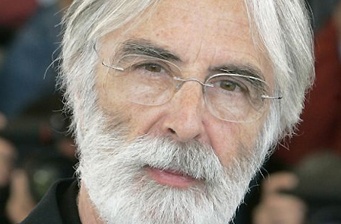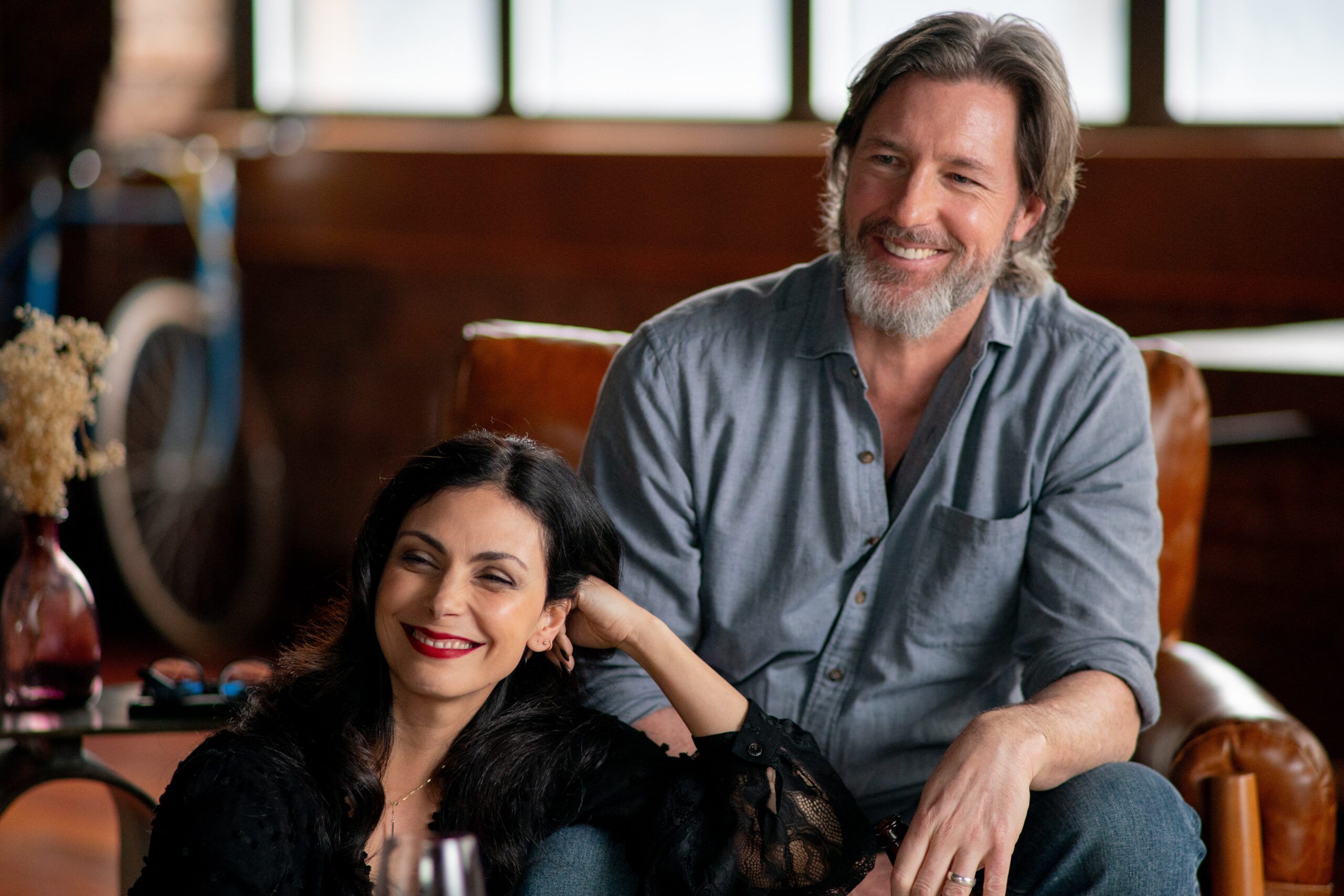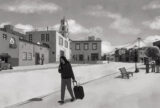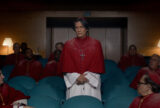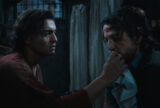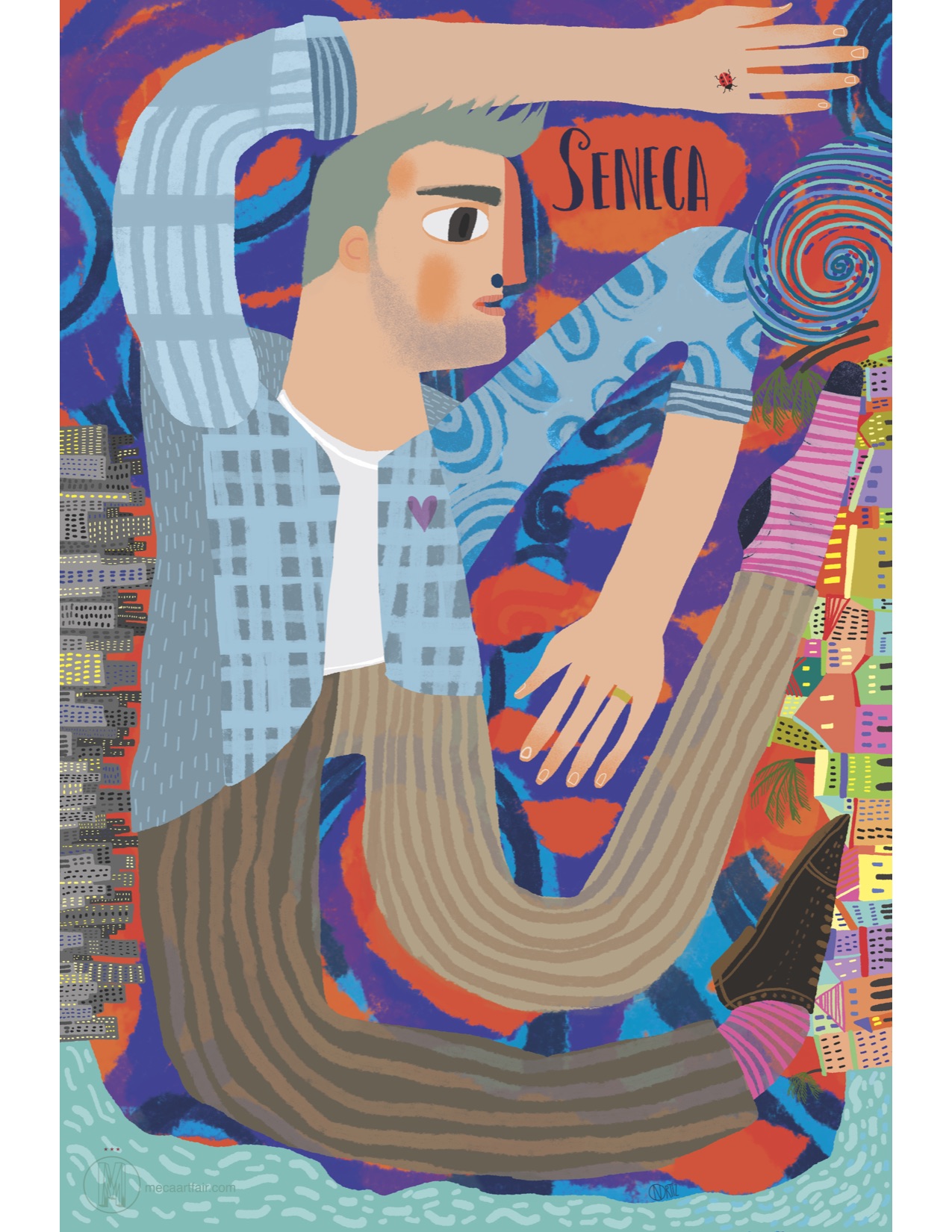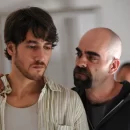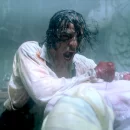05.24.2009 | By Mack Chico |

In awards that ran the gamut from the widely predicted to the jaw-dropping, Michael Haneke‘s “The White Ribbon,” a stark, black-and-white drama set in a rural German village on the eve of WWI, received the Palme d’Or from the jury of the 62nd Cannes Film Festival on Sunday.
Haneke, who had previously won the director award for “Cache” (2005) and the Grand Prix for “The Piano Teacher” (2001), received his first Palme from a visibly delighted Isabelle Huppert, president of the jury. Huppert had won Cannes’ actress gong for “The Piano Teacher.”
“Happiness is a rare thing, but this is a moment in my life when I am truly happy,” Haneke said in his acceptance speech.
The Grand Prix went to French helmer Jacques Audiard‘s tough prison drama, “A Prophet,” which had been a frontrunner for a major prize since screening early on in the fest.
The top two prizes rep a coup for Sony Pictures Classics, which acquired North American rights to “The White Ribbon” before the festival and will distribute “A Prophet” in multiple territories including the U.S.
Sole kudo to an American-helmed film, in a competition light on U.S. fare, was the actor prize for Christoph Waltz for his multilingual tour de force as the Nazi “Jew Hunter” in Quentin Tarantino‘s German-U.S. production, “Inglourious Basterds.” The 52-year-old, Vienna-born thesp was previously unknown outside Germany, where he’s spent most of his career in TV.
“I owe this award to (my role as) Col. Landa,” said Waltz in his acceptance speech, “and his unique and inimitable creator, Quentin Tarantino.”
To a standing ovation in the Grand Theatre Lumiere, French vet Alain Resnais, who turns 87 next month (and was in competition with the elegant tragicomedy “Wild Grass”), received a lifetime achievement award for his work and contributions to the history of cinema. The visibly frail helmer declared it “completely surprising,” a possibly ironic reference to his stormy past relations with the fest (starting with 1974’s “Stavisky … “), from which he’s previously won only one award, the Grand Prix for “Mon oncle d’Amerique.”
While many other Cannes fave auteurs were completely passed over by the jury — including Pedro Almodovar, Ang Lee and Palme laureates Ken Loach and Jane Campion — Danish maverick Lars von Trier‘s latest headline-grabber, “Antichrist,” at least walked away with an actress kudo for Charlotte Gainsbourg‘s performance as a mother whose grief over her child’s death takes a psychotic turn.
Sharing the jury prize were Brit director Andrea Arnold‘s slice-of-lifer “Fish Tank” and South Korean helmer Park Chan-wook‘s vampire meller, “Thirst.” Arnold scooped the same award three years ago with her debut feature, “Red Road.”
Australian helmer Warwick Thornton’s well-received Aboriginal teen drama, “Samson and Delilah,” nabbed the Camera d’Or for first film.
Though several of the awards had largely been predicted and were generally seen as well deserved, many of the others were seen as among the quirkiest in recent memory.
All three of the Asian kudos drew heavy booing from the assembled press corps. Biggest scorn was reserved for the director prize for Filipino Brillante Mendoza‘s rape-and-dismemberment drama “Kinatay” (of which even admiring jury member Hanif Kureishi admitted, “I don’t ever want to see it again, myself”), followed by jeers for “Thirst” and mainland Chinese director Lou Ye’s “Spring Fever,” which copped screenplay (generally seen as its weakest element).
These awards appeared to have reflected deep divisions within the nine-member jury, which, apart from Huppert, included directors James Gray, Nuri Bilge Ceylan and Lee Chang-dong, writer Kureishi, and actresses Robin Wright Penn, Shu Qi, Asia Argento and Sharmila Tagore.
Before the awards ceremony, rumors were already circulating that jury discussions had been particularly fraught. One member described it as the worst jury experience he’d ever had, while another was said to have described Huppert as a “fascist.” Onstage, Huppert, looking visibly tense, referred to “an unforgettable week” and “several hours, uh, several moments of deliberation.”
Show’s host, comedian Edouard Baer, jokingly suggested that the onstage jury might “perhaps exchange telephone numbers and addresses” before parting. However, at the press conference afterward, several members went out of their way to stress that deliberations were “harmonious” and democratic.”
Somewhat less harmoniously, the ecumenical jury, which gave its annual award for spiritual values in filmmaking to Loach’s “Looking for Eric,” bestowed an “anti-prize” on von Trier’s “Antichrist.” Cannes fest director Thierry Fremaux was quick to denounce the dubious honor, calling it a “ridiculous decision that borders on a call for censorship,” particularly from a jury headed by a filmmaker, Romania’s Radu Mihaileanu.
INTL. COMPETITION JURY PRIZES
Palme d’Or
“The White Ribbon” (Michael Haneke, Germany-France-Austria-Italy)
Grand Prix
“A Prophet” (Jacques Audiard, France)
Lifetime achievement award
Alain Resnais, “Wild Grass” (France)
Director
Brillante Mendoza (“Kinatay,” France-Philippines)
Jury prize
“Fish Tank” (Andrea Arnold, U.K.), “Thirst” (Park Chan-wook, South Korea-U.S.)
Actor
Christoph Waltz, “Inglourious Basterds” (U.S.-Germany)
Actress
Charlotte Gainsbourg, “Antichrist” (Denmark-Germany-France-Sweden-Italy-Poland)
Screenplay
Mei Feng, “Spring Fever” (Hong Kong-France)
UN CERTAIN REGARD JURY AWARDS
Main Prize
“Dogtooth” (Yorgos Lanthimos, Greece)
Jury Prize
“Police, Adjective” (Corneliu Porumboiu, Romania)
Special Prize
“No One Knows About Persian Cats” (Bahman Ghobadi, Iran), “Father of My Children” (Mia Hansen-Love, France)
OTHER MAIN JURY AWARDS
Camera d’Or
“Samson and Delilah” (Warwick Thornton)
Special Mention
“Ajami” (Scandar Copti, Yaron Shani, Israel-Germany)
Critics’ Week Grand Prix
“Farewell Gary” (Nassim Amamouche, France)
FIPRESCI AWARDS
Competition
“The White Ribbon” (Michael Haneke, Germany-Austria-France-Italy)
Un Certain Regard
“Police, Adjective” (Corneliu Porumboiu, Romania)
Directors’ Fortnight
“Amreeka” (Cherien Dabis, Canada-Kuwait-U.S.)
SHORT FILMS JURY PRIZES
Palme d’Or
“Arena” (Joao Salaviza, Portugal)
Special Mention
“The Six Dollar Fifty Man” (Mark Albiston, Louis Sutherland, New Zealand)
CINEFONDATION
First Prize
“Baba” (Zuzana Kirchnerova-Spidlova)
Second Prize
“Goodbye” (Song Fang)
Third Prize
“Diploma” (Yaelle Kayam)
“Don’t Step Out of the House” (Jo Sung-hee)
ECUMENICAL PRIZE
“Looking for Eric” (Ken Loach, U.K.-France-Italy-Belgium-Spain)
PRIX VULCAIN TECHNICAL AWARD
Aitor Berenguer, sound mixer (“Map of the Sounds of Tokyo,” Spain)

